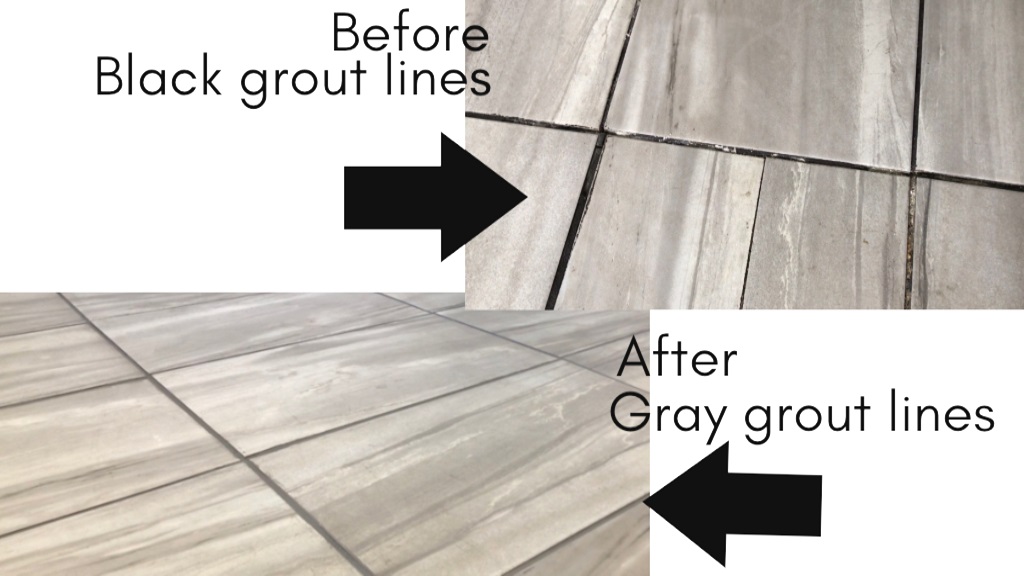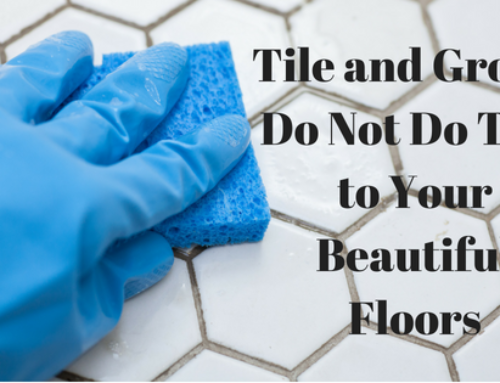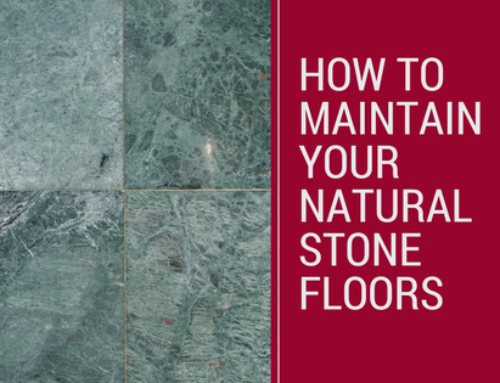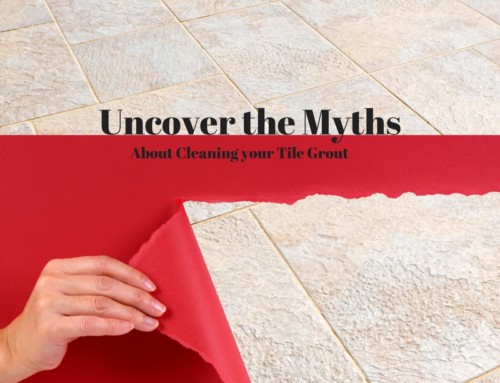Let’s begin with the definition.
What is grout?
Grout is a composite material used in construction to fill voids and seal openings in surfaces. It has similar properties to mortar, but the basic elements of grout are cement, water and sand. It creates a smooth solid floor, wall, or backsplash and makes tile pop. The most common type of grout is cement grout.
Primarily used with tile and after tile is laid on floors or walls, grout is typically used to fill in the space between the tiles and to add a final level of permanence to the job. This may be the most widely recognized use for grout, but it is not the only application. Hollow concrete blocks are often filled with grout after they are set. The installation of rebar for reinforcement of a block-based wall will also require grout as a means for setting the metal rods permanently. Therefore, tile grout is of a slightly different composition than floor grout or structural grout.
What can you use to clean grout?
One common grout cleaner is a simple combination: hydrogen peroxide and baking soda.
- Baking sodais mildly abrasive, so it helps to remove the dirt that is stuck in the porous grout surfaces without causing any damage.
- Hydrogen peroxideis a natural alternative to bleach that brightens and eliminates germs. Plus, it is non-toxic and decomposes into water and oxygen.
When cleaning tile grout, let the cleaner sit on the surface for 5-10 minutes then scrub out the dirt.
You should not use bleach when cleaning grout and tile because: Bleach is a base with a pH of around 12 meaning it is a highly alkaline substance that is caustic (can cause severe burns or injuries). Because of its high pH balance, bleach can be corrosive and slowly destroy the materials it touches including grout and tile finishes. Grout is porous and absorbs the bleach.
Tile grout doesn’t last forever. Long before it begins to physically deteriorate, tile grout will become discolored and unattractive. While this is an inevitable part of having tile floors, walls, backsplashes, or counters, few homeowners ever want this or want to deal with it. Grout discoloration happens because of mold and mildew, as well as dirt that collects in the grout joints over time. No matter how diligently you seal it and no matter how much you scrub the grout, you are bound to end up with dingy, discolored grout.
This is often when people call us in to help make old grout look new again.
How about changing the color of the grout?
You can also choose to change the color of your grout. Your grout can be bold or neutral. You can change the existing grout color with a colorant. It is important to keep in mind that with existing grout, you can change the color only to a darker color; you can’t make dark grout lighter.
Inspect the grout to make sure it is suitable for coloring. It is possible to change the grout color in two ways. You can either remove or replace the grout with new grout of a different color, or you can apply a colorant to your existing grout. Most homeowners would like to avoid removing grout if possible. One way to bypass the work and mess of removal is to preserve the grout but change its color. Grout can be colored with dyes after it has been installed and this is a good choice if the grout is stable and solid.
Grout recoloring can leave your floor looking like new without the cost or mess of replacing your tile floors.







I found it beneficial when you said not to use bleach to clean grout and tile since it can be corrosive. My floors in the bathroom downstairs are looking really bad and I need to have it cleaned out soon. Looks like I should hire a professional grout cleaner that can use the right chemicals to clean it out.
Amazing tips! I think most of the people did not know about grout cleaners.
Thanks for telling us about the importance of solvency. Keep sharing this post more and more.
The DIY is very well made, extremely informative and the directions are easy to follow.
It was quite helpful when you informed us that we can clean our grout by combining a solution of hydrogen peroxide and baking soda since they’re non-toxic and mildly abrasive enough to remove dirt without causing any damage. My relatives are coming over to visit a few days after Christmas, so I want to get the house cleaned properly before then. I’ll have to consider grout cleaning services to take care of our tiled kitchen floors soon.
I am looking forward to trying this out we clean our grout every spring and we have always used bleach but as I’ve gotten older I’ve gotten much more sensitive to it and really can’t be around it anymore. So definitely going to try out this method. I also just found a grout brush that goes on my broom so no more scrubbing on my knees! thanks again
It’s great that you mentioned in this post that bleach may be corrosive and should not be used to clean tile and grout. I need to get my downstairs bathroom cleaned up quickly because the floors there are in terrible shape. It appears that I need to get a professional grout cleaner who is skilled in using the proper chemicals to remove it.